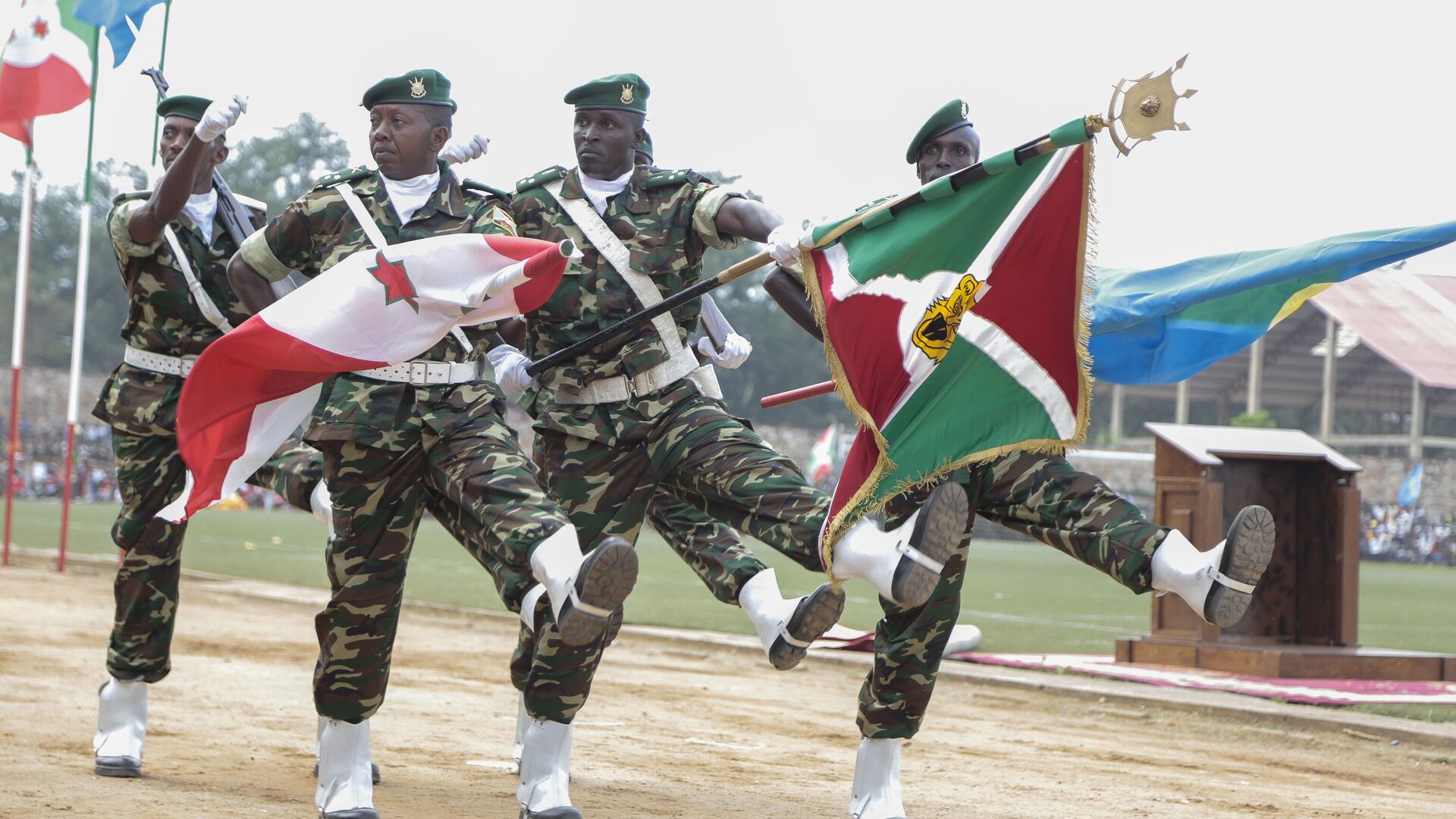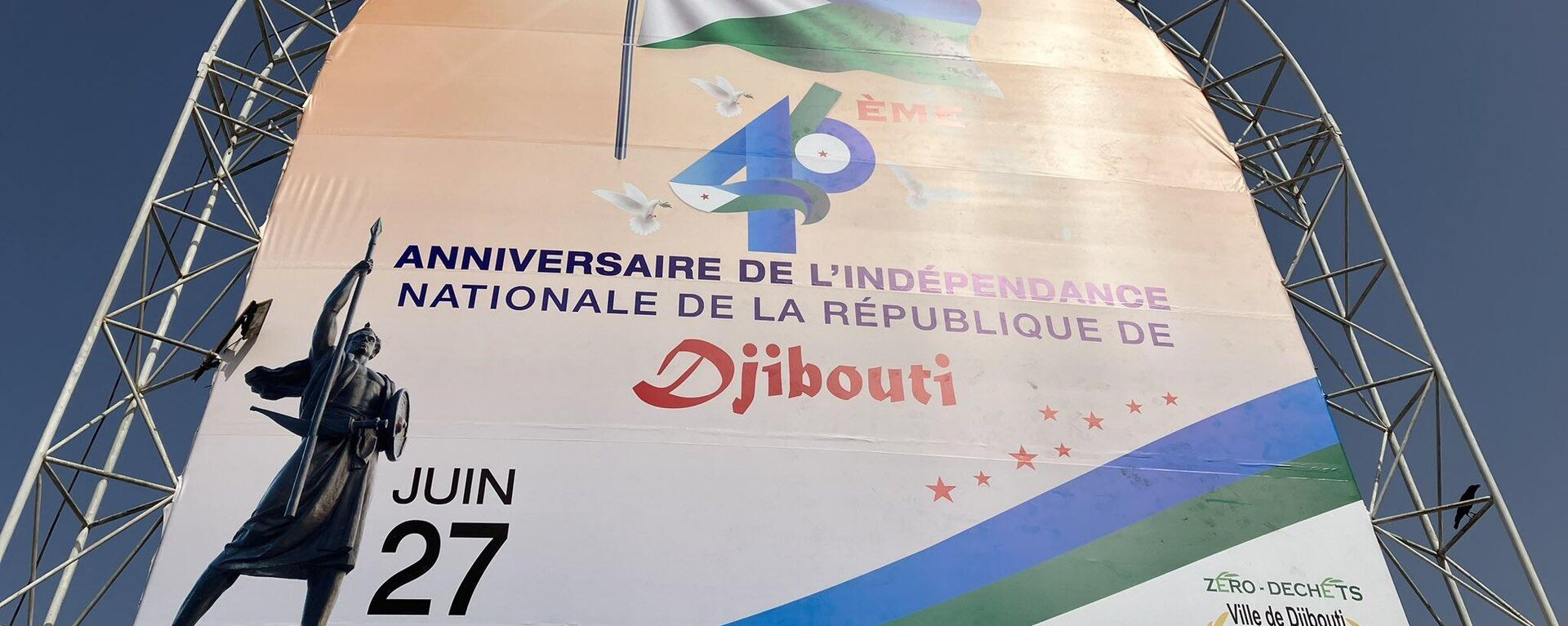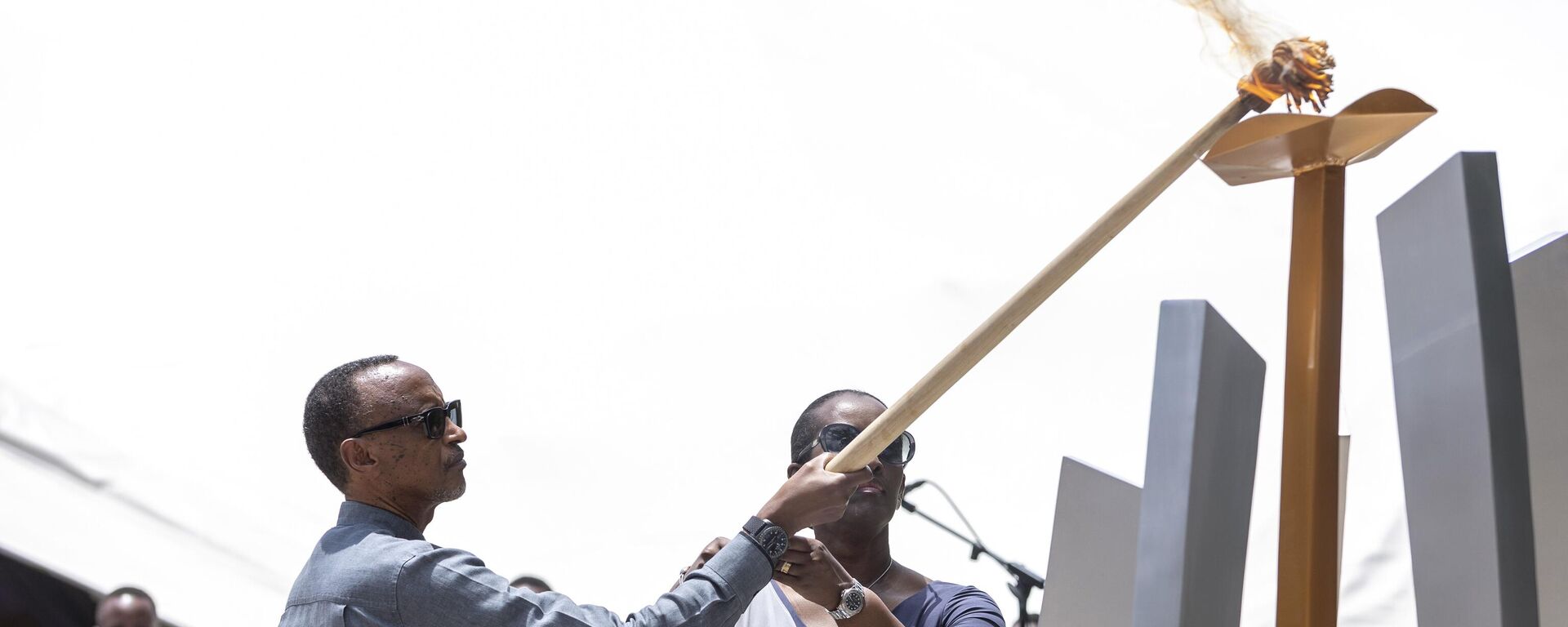https://en.sputniknews.africa/20230701/remembering-the-struggle-for-liberation-burundi-and-rwanda-mark-61st-independence-anniversary-1060266715.html
Remembering the Struggle For Liberation: Burundi and Rwanda Mark 61st Independence Anniversary
Remembering the Struggle For Liberation: Burundi and Rwanda Mark 61st Independence Anniversary
Sputnik Africa
On 1 July, the two nations in the African Great Lakes region mark the day they achieved independence from Belgium. Both countries had their share of struggles... 01.07.2023, Sputnik Africa
2023-07-01T15:09+0200
2023-07-01T15:09+0200
2023-08-03T10:47+0200
features
east africa
rwanda
burundi
colonialism
belgium
independence
genocide
politics
https://cdn1.img.sputniknews.africa/img/07e7/07/01/1060267959_0:0:3072:1728_1920x0_80_0_0_b31e893c796b0b8ed2217ba84fe9f7f8.jpg
Burundi and Rwanda share Independence Day, an important holiday in both the African countries' history, as they were once a single colonial territory. As the nations observe this remarkable day, commemorating their struggle for freedom and peace, Sputnik Africa looks back on major events on their path to liberation. How Ruanda-Urundi Gained IndependenceBefore the Scramble for Africa, there were the separate kingdoms of Ruanda and Urundi (or simply Urundi). However, in the process of the German colonization of East Africa, the Kingdom of Ruanda in 1898 became part of German East Africa. In 1903, the Kingdom of Burundi also fell under German control. The kingdoms were administered as two districts of the colony, with monarchies retained as part of the German policy of indirect rule. In 1916, during the First World War, the territories of Rwanda and Burundi were seized by the troops of the Belgian Congo. Under the Treaty of Versailles, these lands (under the name of Ruanda-Urundi) went to Belgium, for which the League of Nations issued a mandate on 22 July 1922. Under the terms of the mandate, Belgium was required to develop the territories and pave the way for their independence.After the dissolution of the League of Nations in 1946, Ruanda-Urundi became a trust territory of the United Nations. It was transferred to the administration of Belgium, with the latter promising to prepare the territory for independence. However, the Belgians insisted that it would take decades before the territory would be ready for self-rule. Like other colonial powers of Western Europe, Belgium - or, more precisely, its local administration - turned out to be unprepared for the emergence and development of national liberation movements for independence throughout Africa in the Fifties. Such a movement in the Belgian Congo, rich in diamonds and other natural resources, very soon spread to Ruanda-Urundi.In the late Forties, the first political parties emerged in Burundi, and by the Fifties, the Union for National Progress (UPRONA) was formed. Political parties started to advocate the end of Belgian colonial rule and the separation of Rwanda and Burundi. They played an important role in the nations' path to freedom. In 1959, King Mwami Mwambutsa IV requested Burundi's independence from Belgium, as well as dissolution of the Ruanda-Urundi union. Apart from that, ethnic tensions arose between the Tutsi and the Hutu in Rwanda. This resulted in the Rwandan Revolution in 1959, which lasted until 1961. It signified the end of Tutsi domination in politics and the sharpening of internal tensions. After a referendum, in which the Hutu gained overall control, Rwanda transformed from a Tutsi Monarchy to a Hutu-controlled republic.On 27 June 1962, a special session of the UN decided to terminate the Belgian trusteeship over Ruanda-Urundi from 1 July as a result of which two independent states were formed on the same day: the Republic of Rwanda and the Kingdom of Burundi, divided along the former borders. Burundi became a republic in 1966, when Prince Ntare IV was overthrown in a military coup.Modern-day Celebrations to Mark IndependenceIn Rwanda, even though it's a public holiday, Independence Day is not observed with vast celebrations and ceremonies. The day is usually marked by conferences with the participation of representatives of other countries and international organizations, as well as various cultural events. However, a greater celebration traditionally falls on 4 July - the day the Rwandans commemorate the 1994 liberation of the country by the Rwandan Patriotic Front. Liberation Day, known locally as Kwibohora, marks the end of the 1994 genocide committed against the Tutsi.At the same time, Burundi observes Independence Day with nationwide celebrations, featuring colorful parades by military personnel and civilians from state and private organizations. The traditional ceremony in the Burundi capital Gitega usually starts with the laying of wreaths at the mausoleum of Prince Louis Rwagasore, the nation's hero and a leading figure of the anti-colonial movement. After that, the president delivers a speech to the nation, congratulating the citizens and urging them to remember and honor the country's struggle for independence. The celebrations also include fireworks and other public events held across the country.
https://en.sputniknews.africa/20230627/djibouti-independence-day-looking-back-at-nations-path-to-political-freedom-1060186955.html
https://en.sputniknews.africa/20230408/1058512044.html
east africa
rwanda
burundi
belgium
Sputnik Africa
feedback@sputniknews.com
+74956456601
MIA „Rosiya Segodnya“
2023
News
en_EN
Sputnik Africa
feedback@sputniknews.com
+74956456601
MIA „Rosiya Segodnya“
Sputnik Africa
feedback@sputniknews.com
+74956456601
MIA „Rosiya Segodnya“
east africa, rwanda, burundi, colonialism, belgium, independence, genocide, politics
east africa, rwanda, burundi, colonialism, belgium, independence, genocide, politics
Remembering the Struggle For Liberation: Burundi and Rwanda Mark 61st Independence Anniversary
15:09 01.07.2023 (Updated: 10:47 03.08.2023) On 1 July, the two nations in the African Great Lakes region mark the day they achieved independence from Belgium. Both countries had their share of struggles before they became independent and sovereign nations in 1962. Today, they mark this holiday with enthusiasm and pride.
Burundi and Rwanda share Independence Day, an important holiday in both the African countries' history, as they were once a single colonial territory. As the nations observe this remarkable day, commemorating their struggle for freedom and peace, Sputnik Africa looks back on major events on their path to liberation.
How Ruanda-Urundi Gained Independence
Before the Scramble for Africa, there were the separate kingdoms of Ruanda and Urundi (or simply Urundi). However, in the process of the German colonization of East Africa, the Kingdom of Ruanda in 1898 became part of German East Africa. In 1903, the Kingdom of Burundi also fell under German control. The kingdoms were administered as two districts of the colony, with monarchies retained as part of the German policy of indirect rule.
In 1916, during the First World War, the territories of Rwanda and
Burundi were seized by the troops of the Belgian Congo. Under the Treaty of Versailles, these lands (under the name of Ruanda-Urundi) went to Belgium, for which the League of Nations issued a mandate on 22 July 1922. Under the terms of the mandate, Belgium was required to develop the territories and pave the way for their independence.
After the dissolution of the League of Nations in 1946, Ruanda-Urundi became a trust territory of the United Nations. It was transferred to the administration of Belgium, with the latter promising to prepare the territory for independence. However, the Belgians insisted that it would take decades before the territory would be ready for self-rule.
Like other
colonial powers of Western Europe, Belgium - or, more precisely, its local administration - turned out to be unprepared for the emergence and development of national liberation movements for independence throughout Africa in the Fifties. Such a movement in the Belgian Congo, rich in diamonds and other natural resources, very soon spread to Ruanda-Urundi.
In the late Forties, the first political parties emerged in Burundi, and by the Fifties, the Union for National Progress (UPRONA) was formed. Political parties started to advocate the end of Belgian
colonial rule and the separation of Rwanda and Burundi. They played an important role in the nations' path to freedom. In 1959, King Mwami Mwambutsa IV requested Burundi's independence from Belgium, as well as dissolution of the Ruanda-Urundi union.
Apart from that, ethnic tensions arose between the Tutsi and the Hutu in Rwanda. This resulted in the Rwandan Revolution in 1959, which lasted until 1961. It signified the end of Tutsi domination in politics and the
sharpening of internal tensions. After a referendum, in which the Hutu gained overall control, Rwanda transformed from a Tutsi Monarchy to a Hutu-controlled republic.
On 27 June 1962, a special session of the UN decided to terminate the Belgian trusteeship over Ruanda-Urundi from 1 July as a result of which two independent states were formed on the same day: the Republic of Rwanda and the Kingdom of Burundi, divided along the former borders. Burundi became a republic in 1966, when Prince Ntare IV was overthrown in a military coup.
Modern-day Celebrations to Mark Independence
In Rwanda, even though it's a public holiday, Independence Day is not observed with vast celebrations and ceremonies. The day is usually marked by conferences with the participation of representatives of other countries and international organizations, as well as various cultural events.
However, a greater celebration traditionally falls on 4 July - the day the Rwandans commemorate the 1994 liberation of the country by the Rwandan Patriotic Front. Liberation Day, known locally as Kwibohora, marks the end of the 1994
genocide committed against the Tutsi.
At the same time, Burundi observes Independence Day with nationwide celebrations, featuring colorful parades by military personnel and civilians from state and private organizations.
The traditional ceremony in the Burundi capital Gitega usually starts with the laying of wreaths at the mausoleum of Prince Louis Rwagasore, the nation's hero and a leading figure of the anti-colonial movement. After that, the president delivers a speech to the nation, congratulating the citizens and urging them to remember and honor the country's struggle for independence. The celebrations also include fireworks and other public events held across the country.
"According to tradition, 1 July 1962 was a day of special joy, and today it will be the same. Be happy everywhere! Sing "Burundi bwacu" ['Our Burundi!' a national anthem of Burundi]," President Evariste Ndayishimiye said while congratulating the Burundian people on the occasion of Independence Day.





